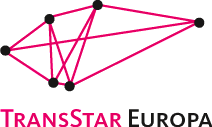 Dr. phil. Alexander Kratochvil
Dr. phil. Alexander Kratochvil
Is currently a J.E. Purkyně fellow at the Czech Academy of Sciences in Prague and there he coordinates a research project on Trauma and Culture of Memory in Central- and East European Literature. From 1987 until 1993 he studied Slavic and German Studies as well as Ethnology at the universities of Munich, Freiburg, Brno (Czech Republic) and L’viv (Ukraine). His latest monograph called On the Move and Return: Ukrainian and Czech Prose in Postmodern Times was published in Berlin (Kadmos) in 2013. Between 2005 and 2009 he organized and directed the Ukrainicum in Greifswald. In addition Alexander Kratochvil conducts research within the framework of the excellence cluster called „Cultural Basics of Integration“ at the University of Constance, he teaches classes on Ukrainian literature at the Humboldt University in Berlin and translates Ukrainian and Czech literature into German. Amongst others, the Droschl publishing house published his translation of Oksana Zabuzhko’s novel “Museum of Abandoned Secrets” in 2010.
How did you come to translation and why is it important for you to translate from Ukrainian into German?
I started translating Czech texts into German during my time at Pilsen University. There I primarily translated scholarly texts, but together with a colleague I translated a play, which was popular in the Czech Republic back then, as well as essays and journalistic texts for German-language print media in the Czech Republic. As I started work as a research assistant at the only Ukraine Studies department (headed by Prof. Mokienko) in Germany located at the University of Greifswald, I started to invite Ukrainian authors within the framework of the Greifswald Ukrainian Studies Departmentand the summer school of the Greifswald Ukrainicum. During my time as director of the Greifswald Ukrainicum until 2009 I maintained this part of the program, i.e. inviting authors and presenting Ukrainian literature. The first authors that came to Greifswald were Andrey Kurkov and Yuri Andrukhovych. During their visit to Greifswald we also of course discussed the lack of translations from Ukrainian into German and the possibilities of how this dissatisfying situation could be changed.
Another source of inspiration were the activities of Ms. Horbatsch, who also regularly came to the Ukrainicum and presented her translations from Ukrainian which she herself self-published under Brodina publishing. And last but not least, since the beginning of the millennium different initiatives were instated by the Robert Bosch Foundation and the LCB Berlin, amongst others, in order to introduce Ukraine as well as its culture and politics. These initiatives brought together people who are interested in Ukraine and had a certain synergy effects, which supported further individual activities. Thus, there were different factors that came together at that particular point in time and advanced the interest for Ukrainian literature and culture. This also led to the first translations at Surkamp publishing house.
Which authors have you translated, and which of those did you especially enjoy translating and why?
Amongst others I translated Yuri Andrukhovych, Larysa Denysenko, Irena Karpa, Serhy Zhadan and Oksana Zabuzhko. Most of the texts I translated were by Zabuzhko including also her voluminous novel Museum of Abandoned Secrets. Of other authors I primarily translated essays or short stories. Most of all, however, I am familiar with texts by Zabuzhko whose prose and essays are very diverse with respect to topic and style. This is something which very much fascinates me about Zabuzhko’s work: with her selection of topics she tends to be very up to date and simultaneously understands how to turn them into timeless topics by way of her aesthetic translation, showing how they are entangled with the past yet simultaneously are of importance for the future.
When political events such as the Orange Revolution or major events like the European Soccer Championship in 2012 bring attention to Ukraine, then the interest in Ukrainian literature increases accordingly. To what degree do such events influence your work and the selection of books you translate?
Such events are welcome occasions in order to attract the attention to Ukrainian literature. If time and resources allow, one should take advantage of these occasions. Together with colleagues from the “Translit” translators association we used the European Soccer Championship in 2012 as a springboard to publish a volume of short stories called “Vodka for the Goalie” in order to compile and translate eleven Ukrainian short stories about soccer.
Overall however the types of texts that are interesting for translation are those which in their composition and aesthetic standard embed such tight and time-weighted events into larger cultural, historical and social contexts, as is the case with novels by Andrukhovych, Zhadan or Zabuzhko.
Do pictures and stereotypes about Ukraine play a role for the selection of your translation strategies? Do you take existing expectations and knowledge of the readers into consideration?
A translated text is an interpretation by the translator. Due to the interpretation of the work by the translator the picture is lead into certain paths. The translation can feed the reader with existing pictures and stereotypes and to a certain degree one has to draw from available knowledge of the reader, has to work with this knowledge. Specific knowledge, pictures and stereotypes about the Ukraine however play a secondary role since neither knowledge of nor ubiquitous pictures about the Ukraine are known. I believe that pictures and stereotypes about the Ukraine only become important for a translation strategy when the original text explains these pictures and as a translator one has the opportunity to discuss the presentation and the presence of the picture – the original however, as already mentioned, has to allow for this.
Which challenges do you continue to be faced with when translating from Ukrainian into German? Are there things, of linguistic or cultural nature, that you consider to be untransmittable?
Essentially I consider all basic things of a culture to be translatable or transmittable, since all languages can describe all humanity in principle. There are of course special cultural phenomenon that refer to historical or social circumstances and because of that require additional explanation in form of a glossary, for instance; glossaries and other techniques of explanation can however also be found in original texts and consequently reader instructions are nothing uncommon. A special problem of linguistic implementation and translation are poems. The translation becomes more complex linguistically the more the language structure, associative and semantic fields implicitly resonate in the original in diachronic and synchronic respects.
Sometimes it is said that literary translation cannot be learned. Which things can be learned and what innate skills does one have to bring to the „translation table“?
From my experience I know that one can learn to translate, also literary translation. I have participated in different translator workshops I have found to be very helpful for my own translation activity. Amongst other things these translator workshops illustrate that one has be very meticulous and attentive with respect to the production of text. Attention to the text production also involves developing an expert eye for the diversity and depth when reviewing texts and eventually it becomes possible to appraise and evaluate translations, i.e. to explicitly identify weaknesses and strengths of a text.
One should bring very good knowledge of the source language and the target language to the „translation table“, whereby the target language is actually more important since a translation flows into the great metatext of the target language and there lives its „literary life“.
Which translation project would you like to start next?
There are a few Ukrainian authors which deal with modern phenomenon that have surprising parallels with German-language and in general international currents and these I would like to translate. They are texts which reflect the bond and at times fatal entanglements of the Ukrainian generations of the 20th and 21st centuries in an aesthetically sophisticated manner.
In addition there is Ukrainian literature fully unknown in the German-language space such as the literature of the 1920s, for instance, which in its aesthetic diversity is part of a pan-European literature of that time and should thus be translated, like for instance Mykola Khvylovy.
The inverview was conducted by Constanze Aka.
Relying on the structure and methodology of classical and postclassical [...]
For further information on translation, the TransStar project and the [...]
Relying on the structure and methodology of classical and postclassical [...]
Sir or Madam, In co-operation with KulturKontakt Austria, the Austrian [...]
Five short films with translations (videopoetry) were made as part [...]
Translating Cube: Six Sides of European Literature and Translation Berlin, [...]
Programme (PDF)
Five short films with translations (videopoetry) were made as part [...]
Translating Cube: Six Sides of European Literature and Translation Berlin, [...]
Programme (PDF)
Translating Cube in Tübingen Reinold Hermanns: SWR2 Journal am Mittag, [...]
Being Exchanged: Between Paris, Stuttgart and Ivano-Frankivsk Yuri Andrukhovytsh, Lubomír [...]
Five short films with translations (videopoetry) were made as part [...]
Bookstore: http://www.edition-fototapeta.eu/geschichten-erzaehlen
More here (PDF). Bookstore: https://knjigarna.ff.uni-lj.si/si/izdelek/1623/pet-poti-do-prevoda/
Five short films with translations (videopoetry) were made as part [...]
Bookstore: http://www.edition-fototapeta.eu/geschichten-erzaehlen
More here (PDF). Bookstore: https://knjigarna.ff.uni-lj.si/si/izdelek/1623/pet-poti-do-prevoda/
Translating Cube: Six Sides of European Literature and Translation Berlin, [...]
Programme (PDF)


